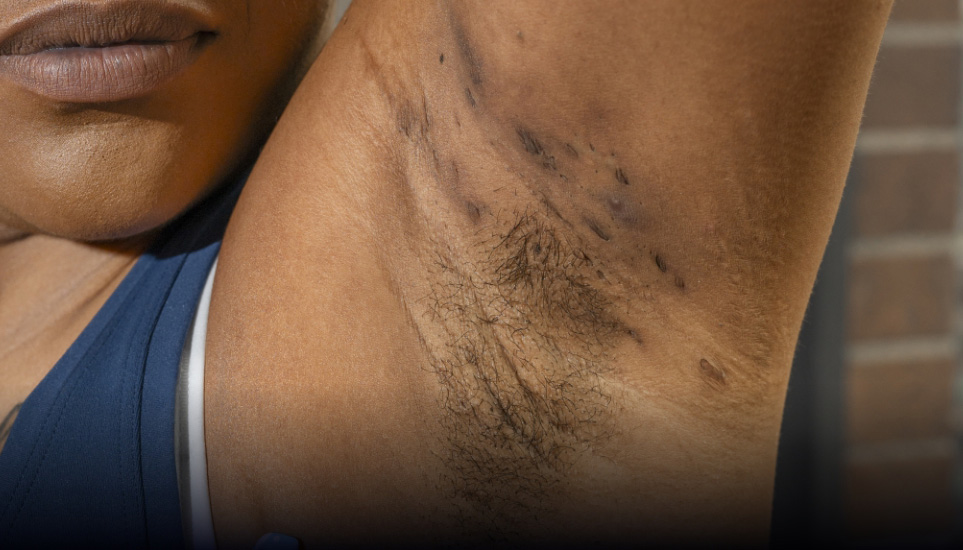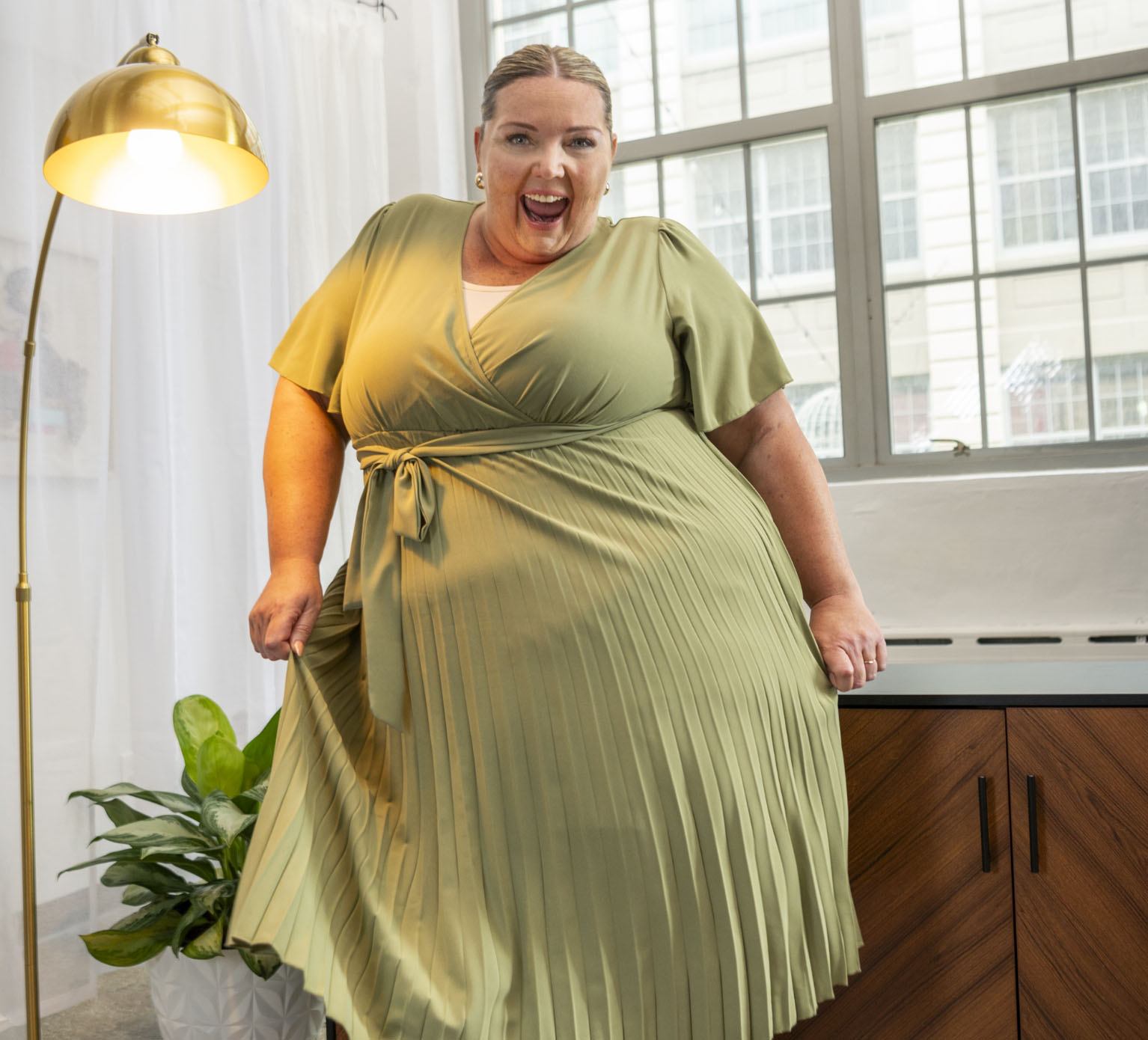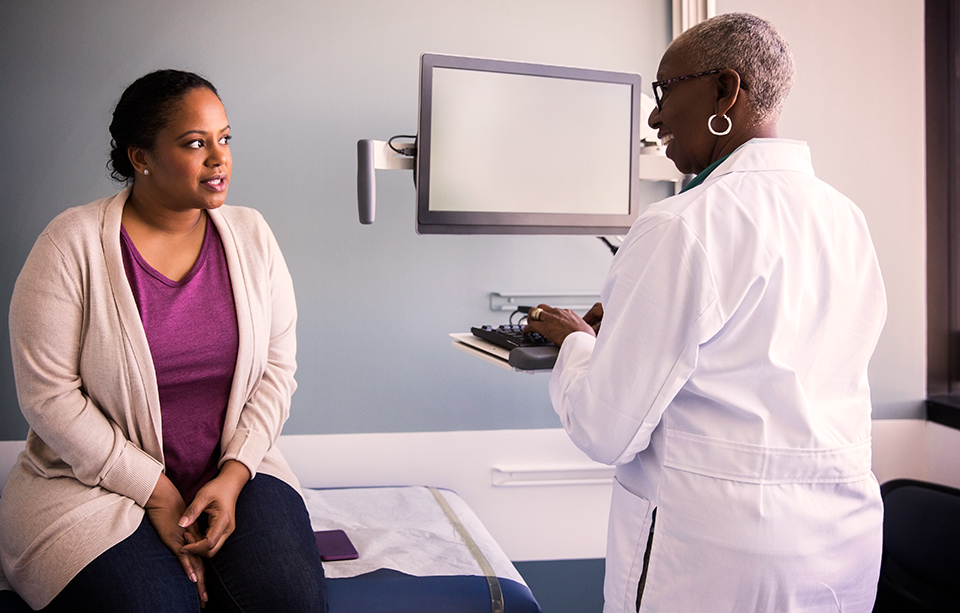Apply a warm compress to encourage wounds to drain.
Place a clean washcloth under warm water, then wring it out and gently place it on your painful abscess area for at least 10 minutes.
FlareAware AND
MANAGING FLARES
If you have HS, you know a flare can throw a wrench in your days. While you should always consult with a dermatologist first, here are some great ways to help at home.
TRY ANTIMICROBIAL WASHES
Acne washes that contain benzoyl peroxide or zinc pyrithione reduce bacteria on the skin—which may help.
Be gentle with your skin—no scrubbing
HS flare-ups are not caused by dirty skin. In fact, scrubbing can lead to inflammation and make things worse.
Be careful when removing hair
Try to avoid waxing—ask your dermatologist if laser hair removal could help. If you shave, use gentle strokes with a clean razor and shaving gel.

Switch up your deodorant
Some products are harsh and can irritate tender underarm skin and cause HS to flare.
Try to avoid excess sweating and overheating
Sweating and overheating can worsen HS, so try to go easy on exercise—especially during flare-ups.
Get loose
When clothing rubs on the skin with HS, it can cause irritation and worsen symptoms. Wearing lightweight, loose clothes that don’t constrict areas where you have HS can help.

Soothing the Symptoms
Talk with your dermatologist about ways you can ease your painful HS
symptoms. These may include:
Use a cold compress to help take down swelling and ease pain.
Cold packs can reduce pain and help with abscesses that aren’t draining.
Use moisture-absorbing powders to help with draining boil-like abscesses.
As abscesses drain, moisture-absorbing powders can help keep the area dry. And if drainage irritates your skin, washing with cleansers containing zinc can help.
Remember—what works for some will not work for all.
Work with your derm to explore tips that work for you.

HS Wound Care Tips
HS can cause flare-ups and wounds that take some time to heal. Here’s how to promote healing and prevent infection.
Protecting HS wounds and absorbing fluids is key. Your health insurance may cover highly absorbent dressings, but simple gauze works, too.
Using feminine pads is a cost-effective lifestyle hack that some HS warriors recommend. Apply over the area and secure with a reusable medical wrap.
Your derm may be able to recommend dressings and specific cleaning instructions based on severity and location.
Gently wash your HS lesions once a day with mild soap and water.
Applying a thin layer of petroleum jelly can soothe and help HS wounds heal—and can make removing bandage dressings less painful.
HS wounds in different areas require different approaches—like your buttocks. Try a large pad held in place by fitted underwear instead of multiple bandages on individual abscesses.


